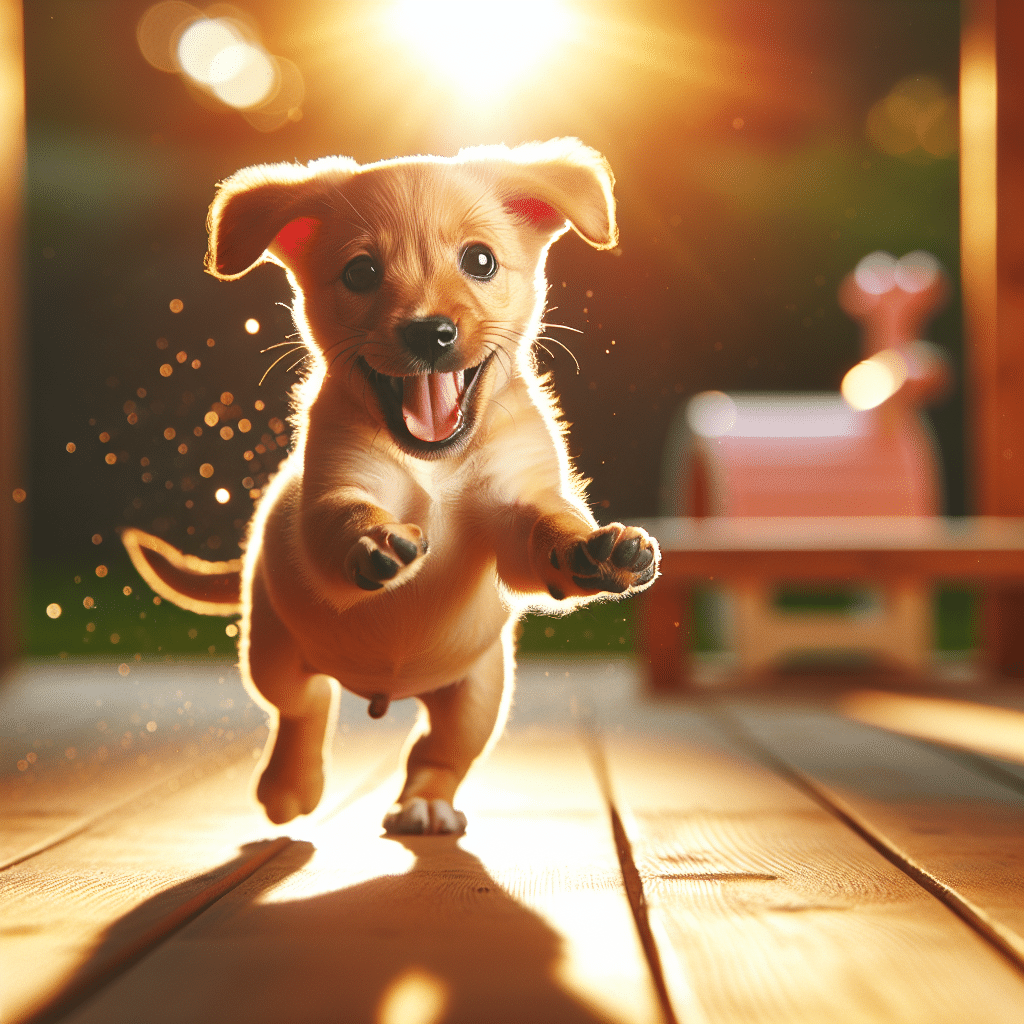
Welcome to Dog Training Games for Bonding
Introduction to Health & Training of Dogs
Welcome, fellow dog lovers! This self-guided online lesson is designed to help you enhance the health and training of your beloved furry companions. While traditional training methods are effective, incorporating fun and interactive games can strengthen the bond between you and your dog while achieving training goals.
Through a series of innovative and engaging activities, you will discover how to make training sessions more enjoyable and effective for both you and your dog. These training games are not only beneficial for obedience and behavior but also promote mental stimulation and physical exercise, contributing to your dog's overall well-being.
Join us on this journey to build a stronger connection with your canine companion through the power of play and positive reinforcement. Let's embark on this adventure together and unlock the full potential of your dog's training and health!
Understanding common behavioral problems in dogs is crucial when engaging in dog training games for bonding. By recognizing these issues, dog lovers can address them effectively and strengthen their relationship with their furry companions. Here are some common behavioral problems to look out for:
Aggression: Aggression in dogs can manifest in various ways, such as growling, biting, or snapping. It is essential to understand the root cause of the aggression, whether it be fear, territoriality, or resource guarding, to address it appropriately.
Separation anxiety: Dogs that experience separation anxiety may exhibit destructive behavior, excessive barking, or attempts to escape when left alone. Creating a safe and comfortable environment for your dog, along with gradual desensitization to being alone, can help alleviate this issue.
Excessive barking: Excessive barking can be a nuisance and may indicate underlying issues such as boredom, anxiety, or the need for attention. Providing mental and physical stimulation through training games and exercises can help reduce excessive barking.
Jumping up: Dogs that jump up on people can be challenging to manage, especially when greeting guests. Consistent training and positive reinforcement to redirect this behavior towards more appropriate actions, such as sitting, can help curb jumping up.
By understanding and addressing these common behavioral problems in dogs, dog lovers can create a harmonious environment for training games that promote bonding and strengthen the bond between them and their canine companions.
Early socialization and training are crucial aspects of a dog's development that greatly impact their behavior and ability to bond with their owners. By introducing puppies to a variety of people, animals, environments, and experiences during their critical socialization period, typically between 3 and 14 weeks of age, dog owners can help them become well-adjusted and confident adults.
Training games play a significant role in this process as they not only provide mental stimulation and physical exercise but also establish a strong bond between the dog and their owner. Through interactive play, dogs learn to follow commands, focus their attention, and develop trust in their human companions.
Consistent training and positive reinforcement techniques during the early stages of a dog's life set a solid foundation for ongoing learning and behavior modification. By incorporating fun and engaging games into the training routine, dog owners can make the process enjoyable for both themselves and their furry friends, strengthening the bond between them.
Positive reinforcement is a powerful tool in dog training, particularly when it comes to training games for bonding with your furry friend. This technique involves rewarding your dog with something they enjoy, such as treats, praise, or playtime, when they exhibit good behavior. By focusing on positive reinforcement, you can strengthen the bond between you and your dog while encouraging them to repeat desired behaviors.
When using positive reinforcement techniques in dog training games, it's essential to be consistent with your rewards. Timing is crucial – make sure to reward your dog immediately after they display the desired behavior. This helps your dog make the connection between their actions and the positive outcome, reinforcing the behavior you want to see more of.
Keep training sessions short and fun to prevent your dog from becoming bored or frustrated. Incorporate a variety of training games that focus on different skills, such as obedience, agility, or scent work, to keep your dog engaged and motivated. Remember to always end on a positive note, even if progress is slow – celebrating small victories can go a long way in building a strong bond with your dog.
When it comes to incorporating dog training games into your routine for bonding, creating a structured schedule is key. Dogs thrive on routine and consistency, so establishing a set time each day for training games will help reinforce good behavior and strengthen the bond between you and your furry friend.
Start by selecting specific times during the day when you can dedicate a few minutes to playing training games with your dog. This could be in the morning before work, in the evening after dinner, or even during your lunch break. Consistency is key, so try to stick to the same schedule every day.
Plan out the types of games you want to play with your dog, focusing on activities that promote bonding and positive reinforcement. Whether it's fetch, hide and seek, or agility exercises, make sure the games are enjoyable for both you and your dog.
During your training games, be sure to provide clear instructions and use positive reinforcement techniques such as treats and praise to reward good behavior. Remember to keep the sessions short and fun to prevent your dog from becoming bored or frustrated.
By creating a structured routine for training games, you'll not only strengthen the bond with your dog but also improve their behavior and overall well-being. Consistency, patience, and positive reinforcement are key elements to successful dog training games for bonding.
While training games can be a fun and effective way to bond with your dog, it's important to recognize when professional help may be needed. Dog behavior can be complex, and not all issues can be resolved through training games alone. If you find that your dog is exhibiting persistent behavioral problems, aggression, fear, or anxiety, seeking the assistance of a professional dog trainer or behaviorist is crucial.
A qualified professional can assess your dog's behavior, provide tailored training plans, and offer guidance on how to address specific issues effectively. They have the expertise and experience to work with you and your dog to create a safe and positive training environment. Additionally, a professional can help you understand your dog's behavior better, leading to a stronger bond between you and your furry companion.
Remember, there is no shame in seeking professional help when it comes to your dog's well-being. By working with a trained expert, you can ensure that you are providing the best possible care and training for your beloved pet.
Wrap Up: Achieving Your Dog Training Goals
Throughout this lesson, we've explored the vital connection between the health and training of our beloved canine companions. From understanding the importance of physical and mental well-being to implementing effective training techniques, we've covered a range of topics to help you provide the best care for your furry friend.
Remember Your Goal: From Dog Training Games to Fun & Engaging Activities
As a dog lover, your ultimate goal is to strengthen the bond with your pet through engaging and enjoyable activities. By transitioning from structured training sessions to interactive games that both you and your dog can relish, you pave the way for a harmonious and joyful relationship.
If you ever feel the need to revisit the concepts we've discussed or seek additional guidance, don't hesitate to review this lesson or explore other modules in this course. Your dedication to your dog's well-being and happiness will undoubtedly lead to a fulfilling and rewarding journey together.
